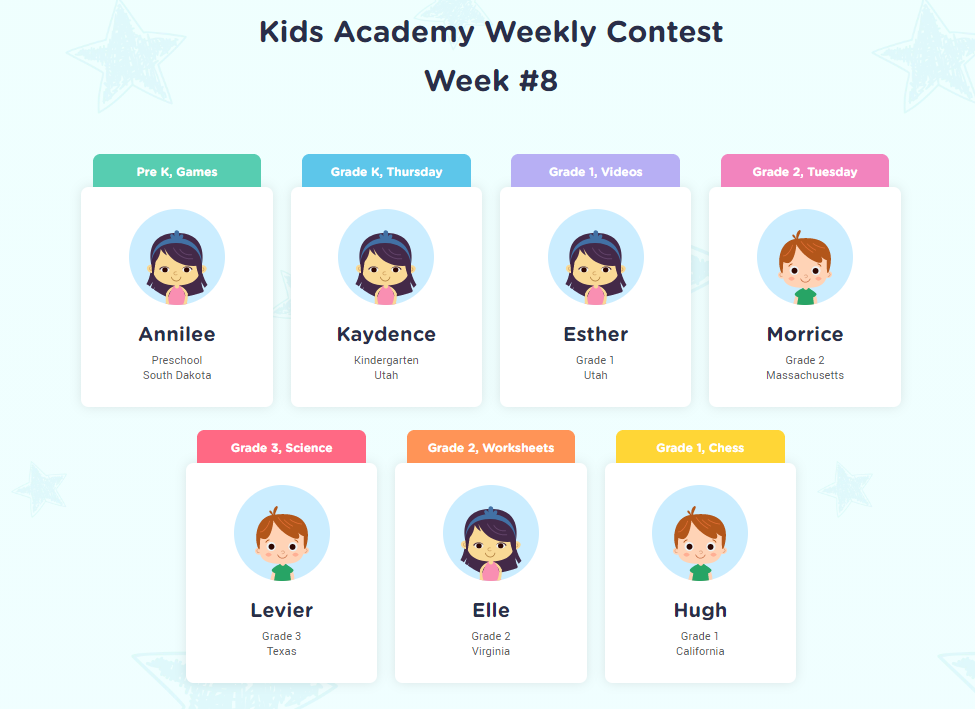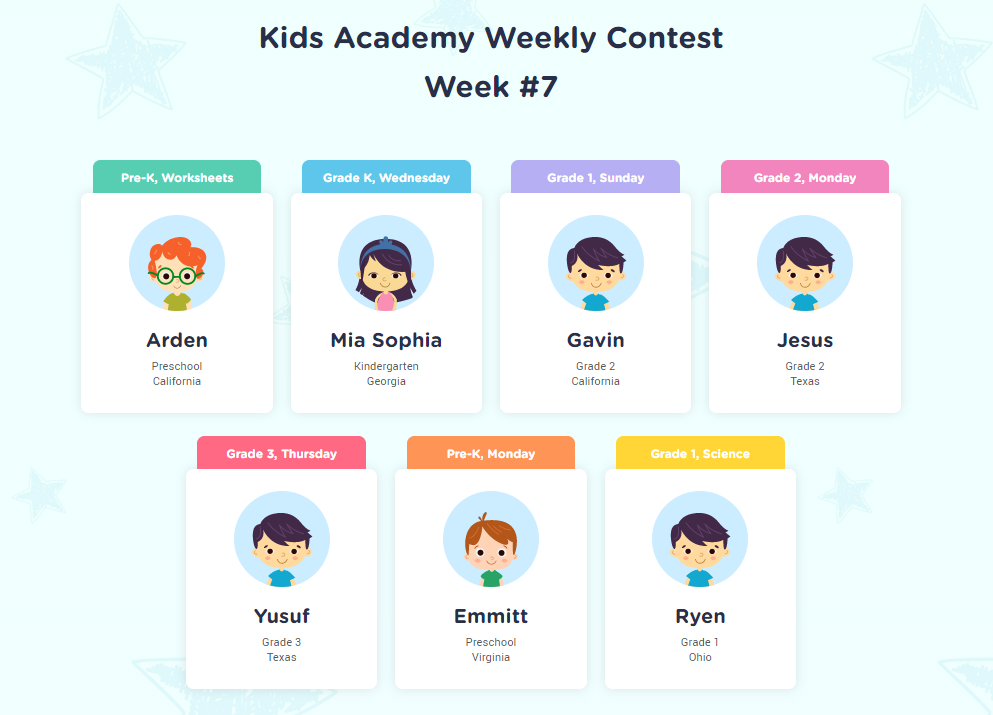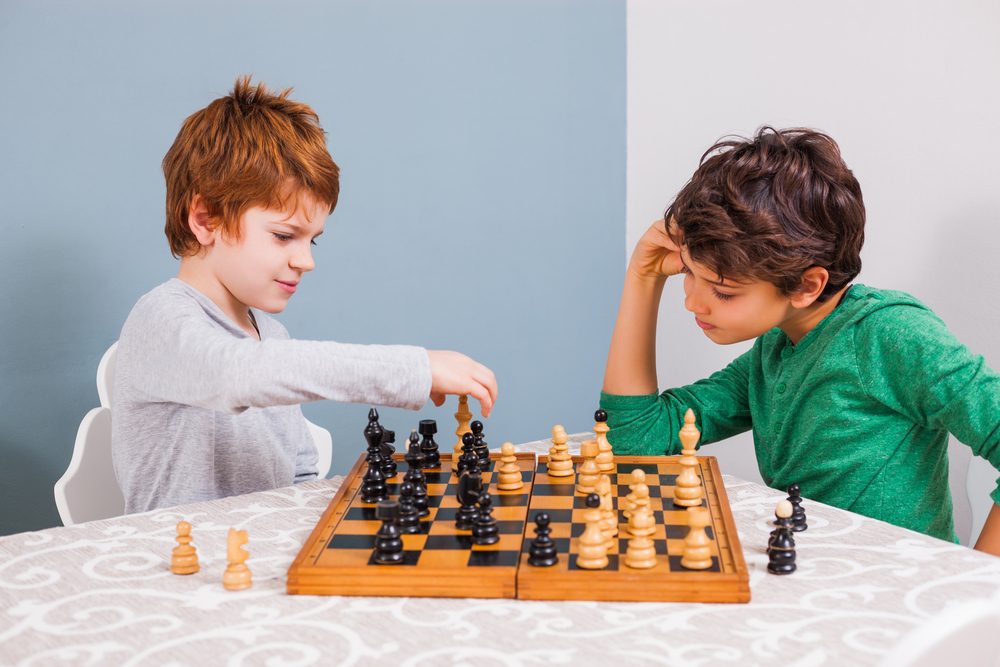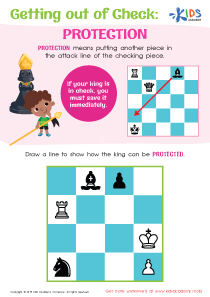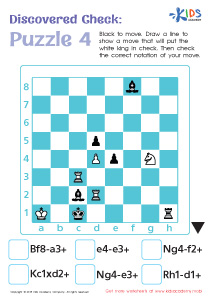Logical thinking development Chess Worksheets for Ages 4-6
3 filtered results
-
From - To
Unlock your child's logical thinking potential with our engaging Chess Worksheets designed for ages 4-6! These worksheets introduce young learners to the fundamentals of chess while enhancing critical thinking skills in a fun and interactive way. Each activity is thoughtfully crafted to boost problem-solving, strategic planning, and decision-making abilities. As children explore the game of chess, they'll improve their focus and concentration, laying a strong foundation for academic success. Perfect for classroom settings or at-home learning, our worksheets provide hours of educational entertainment. Start nurturing your child's logical thinking today with our colorful and stimulating chess worksheets!
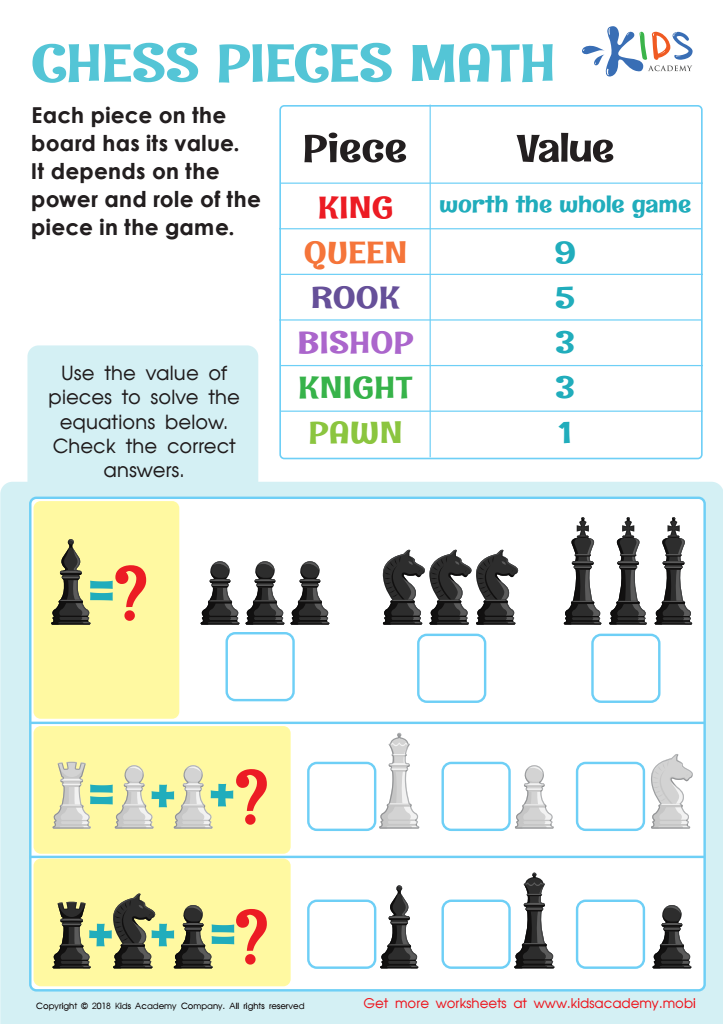

Chess Pieces Math Worksheet
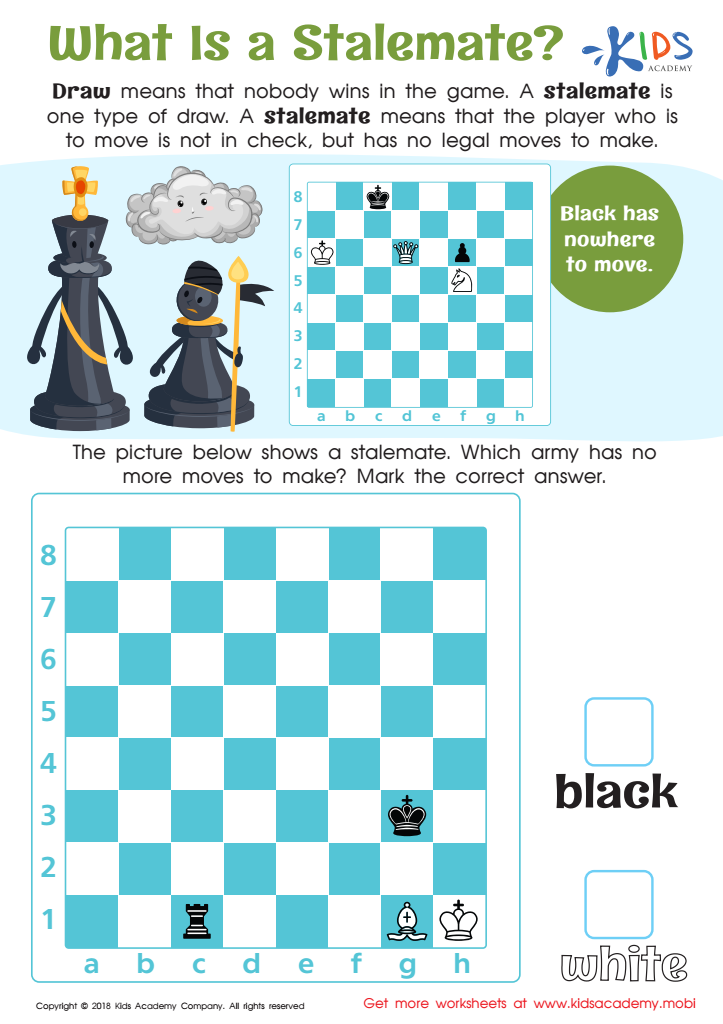

What Is a Stalemate? Worksheet
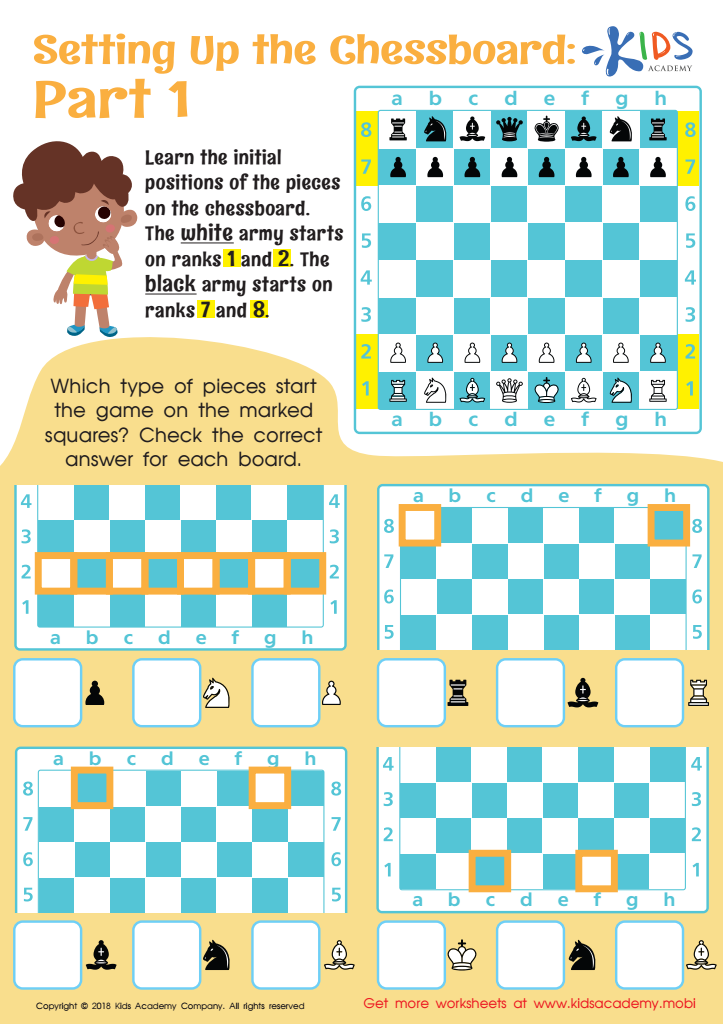

Setting up the Chessboard: Part 1 Worksheet
Logical thinking development is crucial for young children, and learning chess can significantly enhance these skills. For ages 4-6, engaging with chess encourages critical cognitive abilities such as problem-solving, planning, and decision-making. The game introduces children to the concept of consequences; every move requires considering what might happen next, both for their own piece and the opponent's strategy. This fosters an understanding of cause-and-effect relationships, which is foundational for logical reasoning.
Chess also enhances concentration and patience, qualities that are vital during formative years. As children learn to focus on their game, they develop the ability to concentrate in other areas, including academic subjects. Moreover, playing chess helps enhance memory and analytical skills, as children must recall various moves and predict future scenarios based on their current position.
For parents and teachers, supporting chess-based activities not only enriches logical thinking but also provides an enjoyable way to nurture these essential skills. Incorporating chess into learning environments fosters collaboration and communication as children discuss strategies, learn from each other, and celebrate victories. Ultimately, encouraging chess at a young age plants the seeds for critical thinking and academic success in the future.

 Assign to My Students
Assign to My Students





